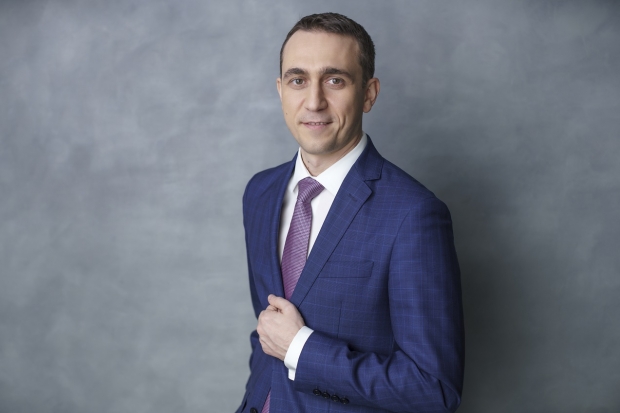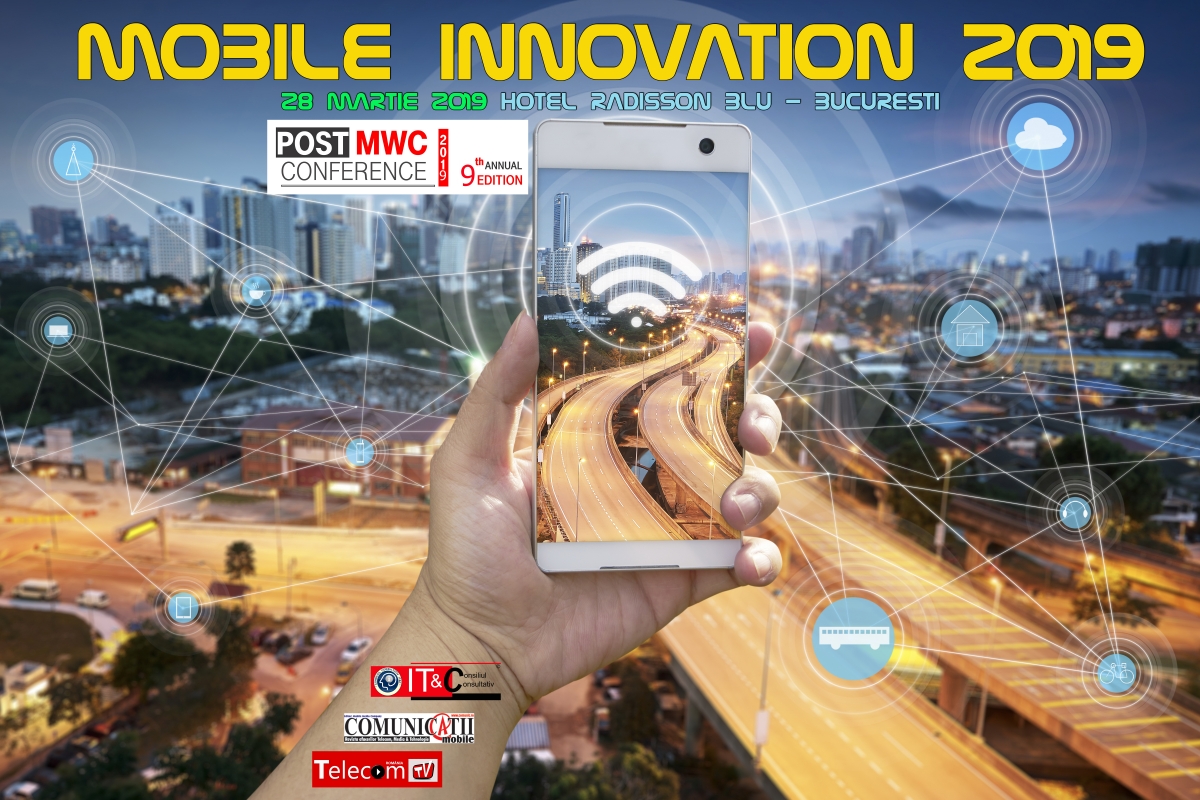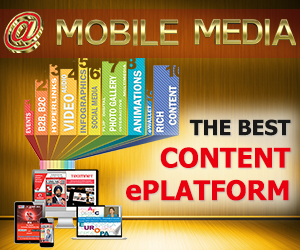
The survey Building blockchains for a better planet developed by PwC for World Economic Forum and launched at Global Climate Action Summit, identifies more than 65 ways blockchain can be applied to the world’s most-pressing environmental challenges. The report is part of the 4th Industrial Revolution project examines how new global platforms could incubate responsible blockchain ecosystems. “Blockchain applications to transform finance and commerce have been front of mind for business and investors to date. There is an opportunity for fresh ideas to harness this nascent technology to help deliver big gains for our environment. From transparent and trusted clean and ethical supply chains, to incentivising sustainable consumption and production, or underpinning the much needed transition to low carbon decentralised energy, water and mobility systems”, said Ionuț Sas (photo), Partner, Leader of the fiscal practice for the technology, media and telecom sectors, PwC Romania.
These new ways blockchain could help tackle environmental challenges range from decentralizing management of natural resources such as energy and water, to creating more transparent supply chains that drive greater sustainability, and providing new mechanisms for raising the trillions of dollars that will be needed to deliver low-carbon and sustainable economic growth.
Blockchain-enabled solutions are currently being explored to improve the sustainability of global supply chains and could help overcome illegal activities by tracking fish from “bait to plate”, or commodities like palm oil, beef and soy from “farm to fork”. Blockchain-enabled smart contracts could, for instance, be used to underpin innovative tenure arrangements that give specific resource rights to communities or fishers.
According to the report, these and other opportunities have been largely untapped by developers, investors and governments, and represent an opportunity to unlock and monetize value that is currently embedded in environmental systems.
“It is important for anyone thinking about developing or investing in a blockchain application for the environment to take a step back and ask three essential questions: will blockchain solve the actual problem, can downside risks or unintended consequences be acceptably managed, and has the right ecosystem of stakeholders been built?”, continued Sas.
If harnessed in the right way, blockchain has significant potential to enable the transition to cleaner and more resource-preserving decentralized solutions, unlock natural capital and empower communities. This is particularly important for the environment, where the tragedy of the commons and challenges related to non-financial value are prevalent.
“If history has taught us anything, it is that these transformative changes will not happen automatically. They will require deliberate collaboration between diverse stakeholders ranging from technology industries through to environmental policy-makers, and will need to be underpinned by new platforms that can support these stakeholders to advance not just a technology application, but the systems shift that will enable it to truly take hold,” said Dominic Waughray, Head of the World Economic Forum’s Centre for Global Public Goods.
Building block(chain)s for a better planet forms part of a series of reports from the Fourth Industrial Revolution for the Earth project, run in association with the World Economic Forum Centre for the Fourth Industrial Revolution.
Download the report here.
Notes to editors:
1. Building block(chain)s for a better planet is published by the World Economic Forum System Initiative on Shaping the Future of Environment and Natural Resource Security in partnership with PwC and the Stanford Woods Institute for the Environment. It was made possible with funding from the MAVA Foundation. It forms part of a series of reports from the Fourth Industrial Revolution for the Earth project, run in association with the World Economic Forum Centre for the Fourth Industrial Revolution
2. The World Economic Forum, committed to improving the state of the world, is the International Organization for Public-Private Cooperation. The Forum engages the foremost political, business and other leaders of society to shape global, regional and industry agendas. (www.weforum.org).
3. A recent global study by PwC of business attitudes to and action on blockchain reported that 84% of executives surveyed had blockchain initiatives underway – 15% fully live. A quarter of executives report a blockchain implementation pilot in progress (10%)or fully live (15%). Almost a third (32%) have projects in development and a fifth (20%) are in research mode. The report surveyed 600 executives in 15 countries and territories, on their development of blockchain and views on its potential. Download the study here: pwc.com/blockchainsurvey
About PwC
At PwC, our purpose is to build trust in society and solve important problems. We’re a network of firms in 158 countries with more than 236,000 people who are committed to delivering quality in assurance, advisory and tax services.
The survey Building blockchains for a better planet developed by PwC for World Economic Forum and launched at Global Climate Action Summit, identifies more than 65 ways blockchain can be applied to the world’s most-pressing environmental challenges. The report is part of the 4th Industrial Revolution project examines how new global platforms could incubate responsible blockchain ecosystems. “Blockchain applications to transform finance and commerce have been front of mind for business and investors to date. There is an opportunity for fresh ideas to harness this nascent technology to help deliver big gains for our environment. From transparent and trusted clean and ethical supply chains, to incentivising sustainable consumption and production, or underpinning the much needed transition to low carbon decentralised energy, water and mobility systems”, said Ionuț Sas (photo), Partner, Leader of the fiscal practice for the technology, media and telecom sectors, PwC Romania.
These new ways blockchain could help tackle environmental challenges range from decentralizing management of natural resources such as energy and water, to creating more transparent supply chains that drive greater sustainability, and providing new mechanisms for raising the trillions of dollars that will be needed to deliver low-carbon and sustainable economic growth.
Blockchain-enabled solutions are currently being explored to improve the sustainability of global supply chains and could help overcome illegal activities by tracking fish from “bait to plate”, or commodities like palm oil, beef and soy from “farm to fork”. Blockchain-enabled smart contracts could, for instance, be used to underpin innovative tenure arrangements that give specific resource rights to communities or fishers.
According to the report, these and other opportunities have been largely untapped by developers, investors and governments, and represent an opportunity to unlock and monetize value that is currently embedded in environmental systems.
“It is important for anyone thinking about developing or investing in a blockchain application for the environment to take a step back and ask three essential questions: will blockchain solve the actual problem, can downside risks or unintended consequences be acceptably managed, and has the right ecosystem of stakeholders been built?”, continued Sas.
If harnessed in the right way, blockchain has significant potential to enable the transition to cleaner and more resource-preserving decentralized solutions, unlock natural capital and empower communities. This is particularly important for the environment, where the tragedy of the commons and challenges related to non-financial value are prevalent.
“If history has taught us anything, it is that these transformative changes will not happen automatically. They will require deliberate collaboration between diverse stakeholders ranging from technology industries through to environmental policy-makers, and will need to be underpinned by new platforms that can support these stakeholders to advance not just a technology application, but the systems shift that will enable it to truly take hold,” said Dominic Waughray, Head of the World Economic Forum’s Centre for Global Public Goods.
Building block(chain)s for a better planet forms part of a series of reports from the Fourth Industrial Revolution for the Earth project, run in association with the World Economic Forum Centre for the Fourth Industrial Revolution.
Download the report here.
Notes to editors:
1. Building block(chain)s for a better planet is published by the World Economic Forum System Initiative on Shaping the Future of Environment and Natural Resource Security in partnership with PwC and the Stanford Woods Institute for the Environment. It was made possible with funding from the MAVA Foundation. It forms part of a series of reports from the Fourth Industrial Revolution for the Earth project, run in association with the World Economic Forum Centre for the Fourth Industrial Revolution
2. The World Economic Forum, committed to improving the state of the world, is the International Organization for Public-Private Cooperation. The Forum engages the foremost political, business and other leaders of society to shape global, regional and industry agendas. (www.weforum.org).
3. A recent global study by PwC of business attitudes to and action on blockchain reported that 84% of executives surveyed had blockchain initiatives underway – 15% fully live. A quarter of executives report a blockchain implementation pilot in progress (10%)or fully live (15%). Almost a third (32%) have projects in development and a fifth (20%) are in research mode. The report surveyed 600 executives in 15 countries and territories, on their development of blockchain and views on its potential. Download the study here: pwc.com/blockchainsurvey
About PwC
At PwC, our purpose is to build trust in society and solve important problems. We’re a network of firms in 158 countries with more than 236,000 people who are committed to delivering quality in assurance, advisory and tax services.





